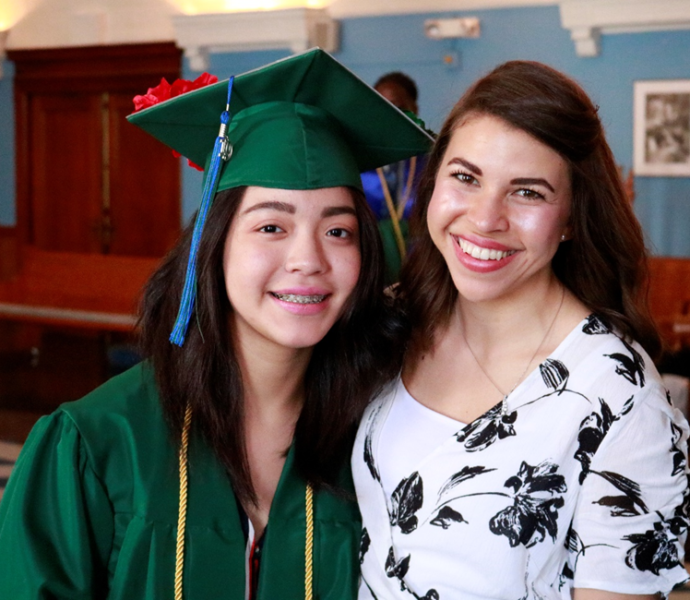College Counseling During COVID-19

In March 2020, the KIPP Nashville college counseling team was already in crisis response mode, supporting families recovering from the deadly tornadoes that had hit their region. When schools began shutting down due to COVID-19, the team immediately swung into action.
According to Loretta McDonald, Dean of College Counseling at KIPP Nashville, and Chaelsa Williams-McKay, KIPP Nashville’s Director of KIPP Forward (formerly KIPP Through College), their team was able to switch to all-virtual meetings within days of the pandemic being declared and focus on being flexible with deadlines to meet students’ needs. KIPP Forward counselors consulted skilled researchers to find out how colleges were dealing with admissions and financial aid during the national shelter-in-place. KIPP Forward’s college counseling work, which usually slows down in June, now took over the entire summer. “The team would not give up,” says Williams-McKay. “They tried different strategies with students over and over again. It was not a one-size-fits-all strategy.”
They focused not only on making sure students met the hard deadlines for applications, but also on addressing students’ social-emotional health. This involved listening and piecing together information from other colleagues to get a picture of what was going on with individual students. “We were able to get a lot of students over the finish line by working together, often late at night and on weekends, to submit the necessary documents for enrollment,” says McDonald.
College enrollment for the Class of 2020 at KIPP Nashville declined just 10 percent, far less than the national average. “One of the keys to success was taking a ‘compassionate prioritization’ approach,” says McDonald. “We took the pressure off of students to complete the financial aid process for every school they applied to and encouraged them to focus on one to two top-choice, best-fit schools, and put their energy behind those.”
So far, for the KIPP Nashville Class of 2021, 95 percent of eligible students have filled out their FAFSA financial-aid documents, with nearly 80 percent of college applications completed.
